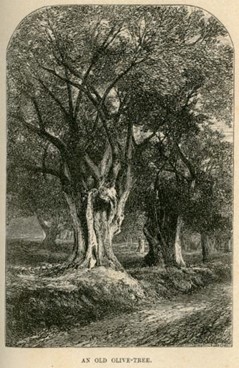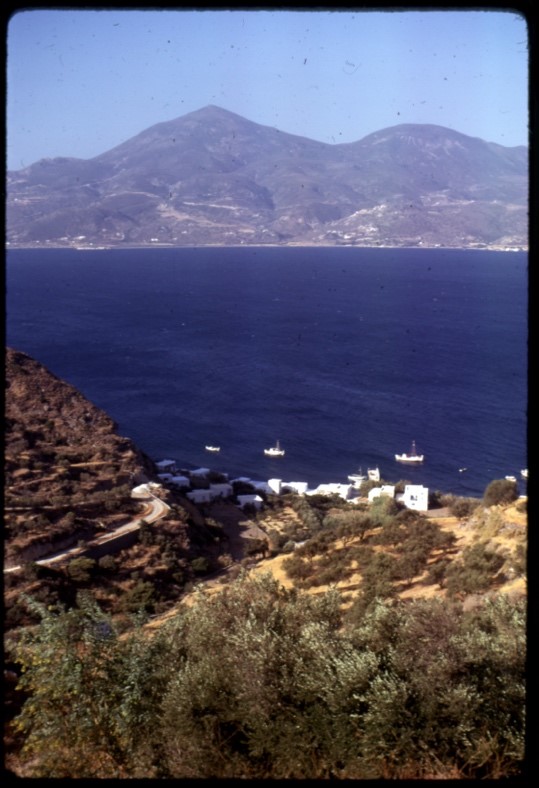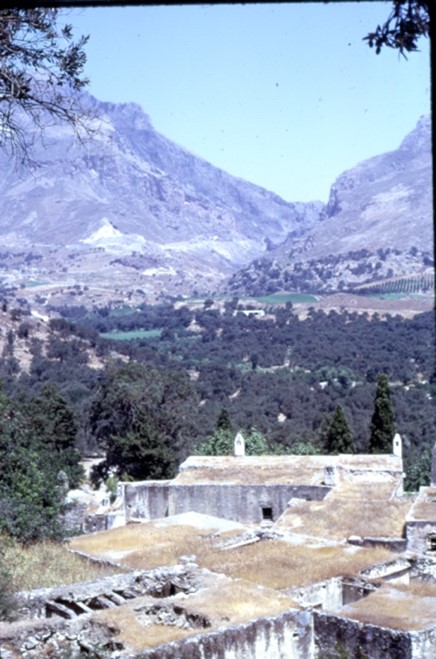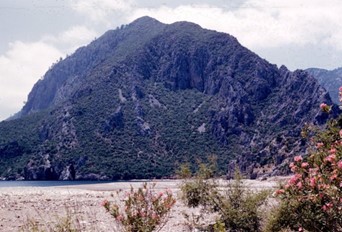The nature of a society is incredibly dependent on the regional environment in which it develops. The land that a group of people originally claim to be their own as a foundation is very often tied to the developing culture in many ways. These connections can be logistical, as there are likely implications on the agricultural system that will develop, and consequent governing bodies will be influenced by the land. These connections can be spiritual, religious practices frequently look back to the ancestors who claimed this land in the first place. In general, these connections shape the culture of a society more than one might expect. The culture of Ancient Greece, in its government, religious practices, and art was incredibly dependent on the land that their ancestors originally claimed.
Mainland Greece is characterized by its rocky, acidic soil building to large mountains with deep valleys between. This soil does not lend itself to a wide array of agricultural products. Many plants, such as grains like wheat, are unable to grow in these conditions. This requires those living in these conditions to outsource many foods requiring the development of extensive trade systems. Olives are a very traditional crop almost always tied to Greece, that is because olive trees are one of the few plants that can grow on this soil easily. An image of one such olive tree can be seen in figure one. Olive trees produce fruit in large and irregular intervals so the regulation of their product by a central power is very difficult. This gestation period appears to be directly tied to the development of a democratic rule in certain Greek poleis like Athens. This system gives more power to the individual farmer to make decisions regarding the olive harvest (Fleck, 2006, p. 125).


Apart from the soil implications, the greater geographical phenomena in this region held influence on the developing city states. The development of the polis can be held directly accountable to the vast mountainous region spanning nearly the entire peninsula. The Greek mountainous landscape in juxtaposition to large bodies of water can be seen in figure two. These mountains isolated groups in their development. Further, the immense network of islands separated by the expansive Aegean Sea adds to the isolation. The growing societies on these islands were similarly separated from one another. As a result of the intense geography, travel was very difficult for the developing people this seriously restricts hopes of domination through conquest (Cartwright, 2020, p. N/A). This isolation prevented a single powerful citystate from dominating the land as a whole for thousands of years.
Independence in the context of a minimal agricultural variety lead to a strong dependance on trade, specifically maritime trade. The extensive mountainous regions pictured in figure three highlight the geographic boundaries in Greece that led to isolation of growing city states. This isolation is what led to independence for many years, forming a culturally rich region filled with diverse traditions and perspectives. In all, geographically dominant mountains and oceans had a large impact on the development of government in ancient Greece.


The environment of Greece was also very influential for the origins and development of the religious practices that took place there. Mountains were often central in depictions of divinity. Traditionally, the Olympian gods were understood to reside on an enormous mountain based on a real Greek summit. Shown in figure four is the massive Mount Olympos, prevalent in much of Greek mythological tradition. Zeus was held to be the supreme god residing on this mountain, but he was accompanied by the entire pantheon of his peers. Greeks did not hold that high elevations are sacred in and of themselves, but that they were sacred for another reason entirely. In the case of Olympos, the mountain is sacred as it is the home of the gods. Other mountainous sanctuaries, like the Acropolis become sacred due to human action (Langdon, 2000, p. 464-467).

The surrounding ocean also carries a strong influence on the life of Ancient Greek religion. Water, the ocean specifically, holds an important place in many mythological stories. It often holds metaphorical significance regarding the life cycle, acting as both the path to the underworld and the source of life originally. Figure five depicts an ocean sunset, like that which may have influenced these narratives. Homer’s Odyssey shows the heroic nature associated with those courageous enough to cross the sea. This story depicts a gloomy interaction between Odysseus and his recently dead shipmate, Elpenor. Elpenor begs Odysseus to give him a proper tribute as his death at sea prevented usual funerary rites (Greene, 1914, p. 434). It is clear that the oceanic environment permeated into religious tradition early in Greek culture and found a primary place in the tradition (Beaulieu, 2008, p. 1). Generally, there seems to be a strong connection between the geographical features in Greece and the religious traditions that arose there.
Greek culture was shaped by countless influential factors over thousands of years. All of these held important roles, but the role of the geographical surroundings in which every generation of Greek politicians, farmers, philosophers, and artists lived cannot be understated. Looming mountains separated Greeks geographically and politically, but they also united them religiously and artistically. Expansive seas reminded people of their own mortality and motivated them to trade with those across the waters. In all, the impact that Greek geography had on the development and spread of culture in the region is immense
Joseph Hane '25